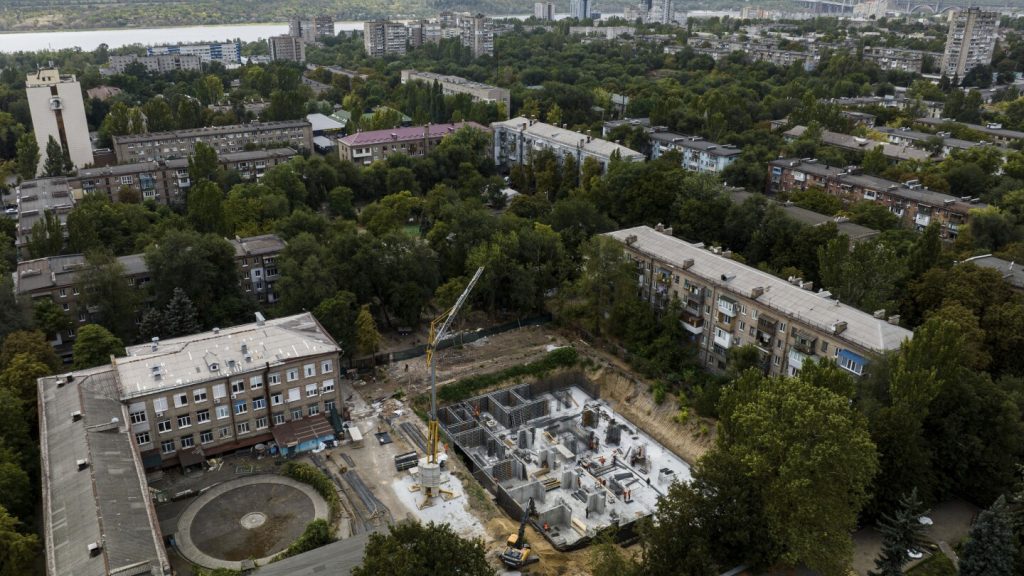The residents of Zaporizhzhia, Ukraine, are facing a dual threat of bombs and radiation due to the proximity of the Zaporizhzhia nuclear power plant, which is under Russian control. This has led to the suspension of in-person classes for over four years, with schools continuing online classes even after the war started in February 2022. To address the safety concerns, construction has begun on a dozen subterranean schools designed to be radiation- and bomb-proof and capable of educating 12,000 students. The next focus will be on building an underground hospital system to further protect the residents.
The daily bombs from the ongoing conflict are a more immediate fear for the residents, as they face frequent missile and bomb strikes. With the Zaporizhzhia nuclear power plant requiring electricity to keep crucial backups functioning, there is a constant risk of the plant being disconnected from the grid or being targeted in attacks. The fear is amplified after Russia’s previous targeting of the Chornobyl nuclear plant, leading to concerns about potential deliberate attacks on nuclear facilities in Ukraine. The Zaporizhzhia plant, while having a safer design than Chornobyl, still poses risks, especially with Russia’s continued aggression.
Ukrainian officials fear that the attacks on the nuclear plants may escalate, leading to potential nuclear disasters that could have far-reaching consequences beyond Ukraine’s borders. Ukrainian President Volodymyr Zelenskyy has warned of potential strikes on more nuclear plants, emphasizing the need for preparedness and protection. The construction of underground schools is seen as a crucial step in safeguarding the younger generation and ensuring continuity of education amid the ongoing conflict and the threat of nuclear disasters.
The investment in underground schools may seem extreme to some, but given the present circumstances in Ukraine, it is seen as a necessary measure to protect the population from both conventional attacks and potential nuclear disasters. The schools are being constructed with advanced safety features, such as air filtration systems, multiple electrical lines, and provisions for autonomous operation in case of emergencies. While being underground significantly improves survival rates, there are calls for the elimination of nuclear weapons as a more effective solution to the underlying problem.
The construction of underground schools in Zaporizhzhia is aimed at providing a safe learning environment for the students and reassuring parents about the future. The schools are being built with reinforced concrete and robust structures to withstand potential bomb attacks and radiation exposure. The goal is to create a conducive environment for education while offering protection against the unpredictable threats from the ongoing conflict. The underground schools are seen as a crucial step in ensuring the continuity of education and the well-being of the younger generation in Zaporizhzhia.
The residents of Zaporizhzhia, particularly the parents and students, are hopeful that the construction of these underground schools will bring a sense of security and normalcy to their lives amidst the ongoing conflict. With the implementation of advanced safety measures and preparations for potential emergencies, the underground schools represent a proactive approach to dealing with the dual threats of bombs and radiation. Despite the challenges and risks faced by the city, the resilience and determination of the residents to rebuild and protect their community shine through in the efforts to create a safer future for the next generation.


